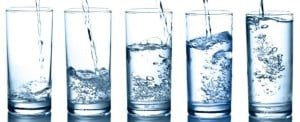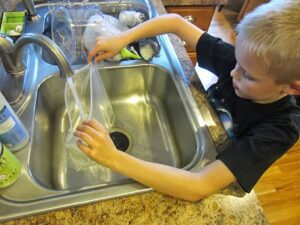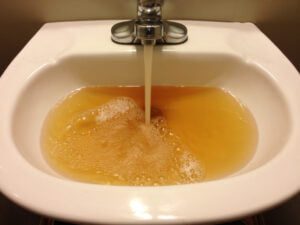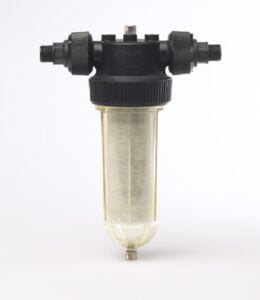Overview Of Water Treatment Systems
Water is a basic and indispensable need in life. We need it to keep our body hydrated for good health. However not all water sources in Cyprus are safe for drinking or cooking. This is the reason why water purification and water treatment systems play an essential role. This does not only apply to Cyprus but in every community.
 Homes can install their own water purification and softener systems. Investing in water filtration systems for your home will be a cleaver step, as it will give you great returns in the long run. Especially for buildings, commercial establishments, and homes that need high-quality water every day.
Homes can install their own water purification and softener systems. Investing in water filtration systems for your home will be a cleaver step, as it will give you great returns in the long run. Especially for buildings, commercial establishments, and homes that need high-quality water every day.
It’s an investment that can prove to be efficient and self-sustaining, both for residential and commercial water systems. Depending on your needs, filtration systems can effectively remove sediments, iron, rust, chlorine, volatile organic compounds (VOCs), bacteria, and other pollutants.
The following are common water filtration systems that we provide in Cyprus:
- Carbon block filters – These are effective in removing chlorine and other VOCs.
- Ceramic filter – This is mainly used to filter out sediments or large particles.
- Reverse Osmosis – This is a very effective way of removing bacteria and an economical choice. It can remove organic and inorganic contaminants like colloids, pyrogens, dissolved solids, and heavy metals.
- Water softeners – Calcium, magnesium, barium, and rust can build up on the water supply as it passes through pipes, and these can affect surfaces like your clothes, sink, glasses, etc. Soft water is best for household use, and the process utilizes ion exchange to decrease chemical concentration.
- UV sterilizers – This can remove bacteria, viruses, and microorganisms that typically cause diarrhea and other gastrointestinal problems. However, it cannot filter out hard water sediments and dissolved contaminants.
- Ionizer – Also called an alkaline ionizer, it’s a device attached to home water systems that changes water pH levels from acidic to basic. Alkaline water has pH levels between 7 to 10, and this is within similar pH levels to that of fresh spring water. This is usually recommended for health benefits, as higher pH levels can help control your body’s acidic levels, act as an antioxidant, and can improve cellular processes.
There are also other types like reverse osmosis, ozone, UV, and activated carbon filter systems. Each one has its own advantages and disadvantages in terms of the type of contaminants filtered.
How do you filter out contaminants to produce clean water?
Clean water is essential to health and in many industrial applications. In this day and age, finding a clean water source is very difficult unless you live in a remote location free from human activities. Even then, there is the chance of naturally-occurring elements and compounds contaminating water sources.
Private well water samples have revealed the presence of contaminants that come from human activities. Clean water is not readily available. It has to be produced.
Clean water is produced with the use of water treatment systems, available in our online Cyprus store. These treatment systems employ various processes to remove any contaminants in the water that makes it unfit for drinking, cooking, and other applications.
There are large-scale treatment systems that are used for industrial and commercial applications. These systems are quite expensive and serve as a significant investment for businesses. There is a home water purification system that is affordable for regular people. These treatment systems employ similar technology to those used in industrial settings but on a limited scale.
Whereas industrial treatment systems usually employ as many treatments as possible, home water filters often only have the treatment technology required for a specific problem. That means that if the water problem involves too much iron, the treatment technology used is also only for removing iron.
This is what makes home filter systems affordable. This is also the reason why testing the water is very important as it allows water treatment technicians to determine the right treatment technology needed for the home water filter.
Common Water Problems
People using wells as water sources only have themselves to depend on when it comes to dealing with any kind of issue with the water. In most cases, they have to install their own treatment systems depending on the quality of their water. They have to make use of microbial filters for water that contains microorganisms and iron filters for water that smells and tastes like rust. A scale filter is installed when the water hardness is an issue. Suffice it to say, they are very well-versed when it comes to dealing with water problems.
People in cities and locations serviced by public water companies have no idea what to do when faced with water problems. This seeming lack of information can put people in danger.
Adjustments in flavor, odor, and color of the water should be reported immediately to the company or government agency tasked with ensuring public safety. Any change in the quality of water indicates a contamination problem. This means that there is something in the water that should not be in it. It is important to stop using this water immediately, particularly for cooking and drinking.
Fluoride in Water
Fluoride is a salt compound that is formed when fluorine combines with minerals commonly found in soil or rocks. It is often added to drinking water by suppliers to promote dental health by preventing cavities and tooth decay.  Fluoridation or the adding of fluoride into water is considered to be one of the greatest achievements in public health. However, recent studies have raised concerns regarding the actual benefit and the risks carried by adding fluoride in the water.
Fluoridation or the adding of fluoride into water is considered to be one of the greatest achievements in public health. However, recent studies have raised concerns regarding the actual benefit and the risks carried by adding fluoride in the water.
It has been found that exposure to excessive consumption of fluoride may lead to an increased likelihood of bone fractures in adults, and may result in effects on bone leading to pain and tenderness.
Many children aged 8 years and younger that are exposed to excessive amounts of fluoride have a higher chance of developing pits in the tooth. Enamel and other types of cosmetic defects to the teeth. This has led to some countries ceasing fluoridation of public water.
The main issue with fluoridation of water is that its dosage cannot be precisely controlled and is in the form of a compulsory medication that leaves the masses without choice. Aside from potential negative effects, it violates the independence of people based on uncertain evidence.
Those who are concerned about the presence of fluoride in their water can have a water sample tested in a laboratory to confirm its presence. Fluoride can be removed from the water with the use of a water filtration system that uses reverse osmosis.
Aside from fluoridation of public water, fluoride can also get into private well water from natural deposits of fluoride salts in the ground that gets dissolved easily by moving groundwater.
What are Fecal Coliforms?
The number of kinds of water contaminants is so many that is practically impossible to have a water sample tested for all potential water problems. Instead of testing for specific contaminants, water testing relies on water quality indicators. So what exactly are water quality indicators?
Water quality indicators are chemical, physical, or other parameters that help determine if there is a problem with the water. An example is a turbidity or the cloudiness of water. Turbid water does not necessarily mean that it is unsafe. It can, however, indicate that there is a problem with the treatment process or with the distribution system. These problems can then lead to the actual contamination problem that makes the water dangerous.
Fecal coliforms are another set of water quality indicators. Coliform bacteria are primarily used for determining the sanitary quality of food and water. These types of bacteria can be found all over the environment. They can thrive in water, soil, and vegetation. Fecal coliforms are a type of bacteria that live in the intestines of various animals.
The presence of fecal coliforms in the water indicates that it has been contaminated by animal or human waste. A most likely cause for the presence of these types of bacteria is a problem with the sewage or the water distribution system.
A leaking water distribution pipe that is near a sewage line can allow bacterial contaminants from the sewage to enter the distribution system and endangering the health of the households that use the water for drinking and cooking.
Water Treatment for Getting Rid Of Iron Contamination
Iron contamination is one of the most common water problems. This water problem is often ignored because iron is non-health threatening. Not many people are willing to go through the trouble of installing a water filter for iron. Many do not know that iron-contaminated water can have serious effects.
 A serious effect of iron contamination is the accelerated corrosion of metal pipes. The chemical reaction between the contaminated water and the metal pipes releases dangerous metals into the water. A common corrosion problem involves brass faucets and fixtures that release copper.
A serious effect of iron contamination is the accelerated corrosion of metal pipes. The chemical reaction between the contaminated water and the metal pipes releases dangerous metals into the water. A common corrosion problem involves brass faucets and fixtures that release copper.
Some of these faucets and fixtures also contain lead solder which also gets released into the water and makes it very dangerous for consumption.
Water appliances like dishwashers and water heaters can break down faster also due to corrosion. Having these appliances break down can be very troublesome and requires costly repairs.
Iron-contaminated water can ruin clothes, discolor ceramic tableware, and leave ugly marks on kitchen fixtures. Iron also gives water an awful color, odor, and flavor which can discourage members of the household from drinking the recommended amount of water for staying healthy.
The good news is that iron contamination is not difficult to fix. There are many iron filters out there that perform a wonderful job of removing contaminant and improving the quality of water.
Iron Contamination Can Damage Water Appliances
Iron belongs to the group of nuisance water contaminants. The contaminants in this group do not pose a serious threat to the health of people consuming the water but can cause other sorts of problems. Because how iron is non- health threatening, many overlook its presence in the water.
health threatening, many overlook its presence in the water.
Most people only use a water filter for iron when the taste of the water gets too bad to drink. Many do not know of the other problems resulting from iron contamination.
Iron contamination can cause damage to water appliances. The iron particles in the water can bond with other substances and form soil buildups that can block pipes and other water passages.
The blockage can cause problems with pressure and insufficient water supply to components. The chances of pipes bursting are increased. Water heating components could overheat due to insufficient water supply.
Corrosion is another problem caused by iron contamination. The components that hold or come in contact with water are made of rust-proof material or coated with an anti-corrosion coating.
Iron oxide can make water corrosive even against rust-proof material. The free particles can also cause physical wear on the anti-corrosion coating.
Iron presence in water is easily detected by tasting the water. But many that have been using iron-contaminated water for a long time get used to the flavor and become unable to distinguish the problem. A water analysis is needed to identify the problem.
Water Treatment for Bad Odor
The bad odor coming from your water indicates the presence of a contaminant. When you perceive something as smelling bad, it is your brain telling you to be careful of that something.
 The first thing you want to do when you notice a bad odor coming from your water is to immediately stop using the water, especially for drinking or cooking.
The first thing you want to do when you notice a bad odor coming from your water is to immediately stop using the water, especially for drinking or cooking.
The next step is to contact the water company to inform them of the problem so that they can fix it or provide you with an alternative water source. If your water comes from a private well, you need to have someone perform a water analysis to identify the exact nature of the contamination.
The outcome of the analysis will also assist you in figuring out if the issue could be resolved with the use of a water filter.
The contamination of water by sewage materials is the most common cause of bad odor for those who are using public water. The limited spaces in cities and places that are extremely urbanized lead to water pipes and sewage systems being in close proximity to each other. It is very easy for a leaking water pipe to become contaminated by sewage materials.
The problem can be solved by locating the leak and then repairing it. However, the repair can take days or weeks depending on the problem. And even quick repairs do not address the fact that you are likely to have drank the water before noticing the bad odor. This is why having a home filter can be very important. A water filter helps keep you and your family safe from the dangers of water contamination.
Removing Acrylamide from Water
Information is your greatest weapon against water contamination. Knowing what to do in case of contamination will help protect you and the people around you. It is unreasonable to expect someone who is not a professional in  water treatment to know about all kinds of contaminants.
water treatment to know about all kinds of contaminants.
However, it is important to have a basic knowledge about the common contaminants that have a higher likelihood o getting into water supplies. This working knowledge is useful when performing water analysis or installing a water purifier.
Acrylamide is an odorless organic compound commonly available in the form of white, flake-like crystals. One of its primary uses is in the production of coagulant aids that are used for drinking water treatment. During the production of the coagulant aids, there is a possibility of residual acrylamide remains in the finished product. Upon putting the coagulant aid in use, it is probable that the organic compound gets introduced to the drinking water.
Due to the lack of odor and very minor physical changes to the water, it can be very difficult to detect acrylamide contamination without proper analysis. However, its introduction to the water can be prevented by making sure that the number of coagulant aids used for water treatment is within the prescribed levels.
Water Analysis and Purification
The clean and safe water you are enjoying now was not exactly that way several hours or days ago. In order to ensure the safety of people, WaterFilterNet.com can perform a series of water analyses and purification treatments in Cyprus.
A water analysis is used to identify any issues with the water. A water sample is taken and tested in a laboratory to determine its general quality and the substances present in it. Thanks to human activities and some natural phenomena, it is almost impossible to find untreated water that is safe to drink.
A strong rain can cause a crystal-clear spring to flow with brown muddy water for more than a week. Human activities like manufacturing can release harmful substances that can make the water perpetually contaminated.
The results of the analysis allow experts to determine what is needed for the next course of action which is water purification.
Water purification is the process of removing or reducing the amount of foreign and potentially harmful substances from the water to within safe levels. This process involves various water treatment methods that are designed to address all the problems of the water.
Some treatments like coagulation and filtration are designed to remove solid particles in the water. Water treatment methods like aeration and ion exchange remove gases and very small particles that are impossible to physically filter out.
Once the water purification is done, the water is once again analyzed to determine if there is a remaining problem. Once it passes the test, the water is now ready to be used by the households.
Filtering Public Water
Public water is the most practical solution to providing water to households in Cyprus. The creation of public water supply systems is one of the major developments that helped advanced civilizations.
The Roman Empire in the past had aqueducts to supply cities with water. Instead of people spending copious amounts of time gathering clean water, the water is made more accessible to them. This allowed for more free time which is then redirected to efforts that improved communities. Some of these aqueducts are still standing today.
The quality of public water in Cyprus is not always the greatest which makes it necessary to consider the use of a water filter. One major weakness of public water is its delivery system. The delivery system is composed of pipes and other components that allow the water to be delivered to homes.
The pipes and other components can get damaged which can result in leaks that allow foreign substances to get into the water. Another thing is that in order to prevent microbial growth in the water, public water is often added with not-so-healthy disinfectants.
The disinfectants and contaminants that are potentially present in the water can affect its quality and safety. Still, public water is much safer compared to private wells in certain locations. Human activities resulting in environmental pollution make it impossible to find clean water.
Aside from microbes, the water filter must also remove iron and other minerals that affect the taste and smell of the water. On the other hand, public water has already undergone treatment processes and the water filter needed only has to remove disinfectant byproducts and more common contaminants that are easily dealt with.
How to Keep Private Well Water Safe
A private well has plenty of benefits. It provides a free source of water which can amount to significant savings in the long run. This can be a game-changer for people who are running businesses that require the use of water. To some people that live in locations that are out of reach of public water supply, the private well is the only option for a reliable source of water.
The water is also free from chemical disinfectants that are commonly added to public water. Clean and fresh water from a well is one of the healthiest water there is due to its abundance of minerals that are needed by the human body to stay healthy.
All the benefits of private wells disappear when the water gets contaminated. There are foreign substances or contaminants that can get into the water and make it unsafe for drinking or cooking. That is why routine analysis of water from a private well is very important as it allows immediate detection of any problem with the water.
Routine water analysis is just one of the things that can help keep private well water safe. A proactive approach to water safety is to be informed of any industrial activities near surrounding locations. Agriculture and manufacturing operations have been known as primary contributors to water contamination.
In case of contamination, a water filtration system can be installed to remove the contaminants from the water and make it safe for consumption once again.
Get Smart with Water Filters and Purifiers!
When it comes to choosing the perfect water filter or purifier, you don’t want to make a splash without knowing all the facts. That’s where WaterFilterNet.com dives in to save the day! They offer a swimmingly comprehensive guide that will help you navigate the sea of options and make an informed decision. Check out their water filters guide here and make a wave of knowledge!
Don’t take a sip of uncertainty when it comes to your drinking water. Dive deep into the importance of quality and the potential risks associated with contaminants. Investing in a reliable water filter is like having a lifeguard for your health, ensuring clean and refreshing water for you and your whole school of little ones. Learn why home water filters are a must for families with babies and toddlers here and make a splash in their well-being!
In Conclusion, WaterFilterNet.com is your go-to source for all things water filtration in Cyprus. They’re the true champions of crystal-clear water, providing top-notch systems, installation services, and even maintenance. Whether you need a filter for your humble abode or a full-scale water treatment system for a grand aquatic adventure, they’ve got you covered. Dive in and invest in the treasure of clean and safe water with WaterFilterNet.com. Cheers to a refreshing future!
Related Links:
Water Treatment System – You Can’t Afford Not To Consider It
Residential water treatment systems
Reverse Osmosis Water Treatments
Reverse Osmosis Water Treatments
Water Treatment, How Important is it?
- How do you use SodaStream Duo – Step by Step Guide? - February 6, 2024
- Why Choose Tankless Systems? Discover the Best Tankless Reverse Osmosis Systems in Cyprus - December 18, 2023
- Comparison of Chlorine vs Chlorine Dioxide: Which is the Superior Sanitizer? - June 25, 2023
